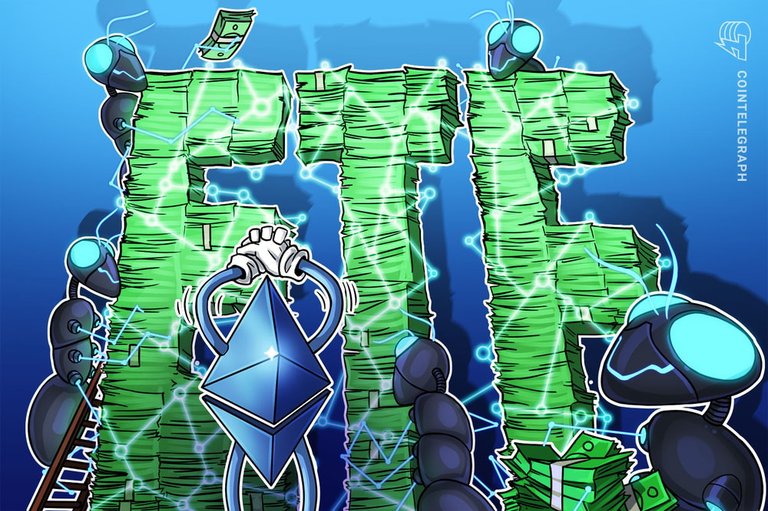What does ETF staking mean for the cryptocurrency ecosystem?
Traditional investment firms are showing signs of being absolutely ready to capitalize on everything the cryptocurrency ecosystem has to offer.
Exchange traded funds(ETFs) are some of the biggest examples of how these institutional players intend to break into this new market and sweep up every open opportunity it offers to capture value.
One of the things that hasn't yet been discussed extensively is “ETF Staking.” Certainly, given that the Securities and Exchange Commission(SEC) of the United States is yet to greenlight this rule change to crypto assets managed by crypto ETF issuers, it is understandable that it isn't a hot topic yet.
But, it will be, soon enough.
Like many things crypto related, we often get to discuss them over in our little Hive bubble before the rest of the ecosystem comes to the realization, and now, to add to the list, how might ETF Staking impact the cryptocurrency ecosystem?
TradeFi = Stability
But, you can bet that there's going to be consequences. Although, I imagine that these will be temporary.
Traditional investment firms launching regulated products that offer exposure to actively traded crypto assets will be looking for stability in as much as they will go for profits.
This means that these firms will aim to stabilize markets that they are a part of, unless of course if there's the incentive to make it more volatile.
The problem, however, with the latter strategy is that it could attract legal consequences and being essentially custodians of assets owned by various individuals, they owe it to their investors to keep their operations within certain limits and run with strategies that are more flexible and acceptable.
When it comes to profiting from the cryptocurrency markets without significant risk exposure, controlling a significant amount of assets supply is one of the most effective strategies.
I mean, just ask the memecoin devs, you can't outperform accounts controlling great supply figures. ETF issuers are bound to control a significant amount of token supplies of every crypto-ETF product they launch and this gives them a market advantage to stabilize prices.
The consequences of this stability is that controlling a significant piece of token supplies effectively leads to the centralization of the various ecosystems. That said, when I said I imagine that these will be temporary I was simply acknowledging that the centralized takeover by institutional players will be a necessary evil that inevitably leads to crypto protocols better structuring their economies to achieve true decentralization.
The fight against centralized control will be temporarily lost because these companies are essentially dealing with capital that is infinite, as such, enough to pull and centralized power across various chains and protocols.
ETF issuers are selling custodian services, and the new chase of yield by filing to stake assets managed by them is just a move to introduce incentives similar to interest on savings accounts and dividends from stock holdings, things that are familiar and appreciated by traditional investors and could potentially attract more capital.
When people who don't want to deal with what will be marketed as a hassle — self-custodianship — find that they can invest in these emerging markets and still get similar to traditional benefits, they quite simply will throw what they got at ETFs.
This creates a scenario where ETF issuers can scoop up significant asset supplies and essentially gain great governance and market influence.
ETF staking is likely to attract fresh capital, potentially stabilize markets too but the consequence is becoming increasingly controlled by TradeFi firms as asset supplies gets concentrated.
Posted Using INLEO
